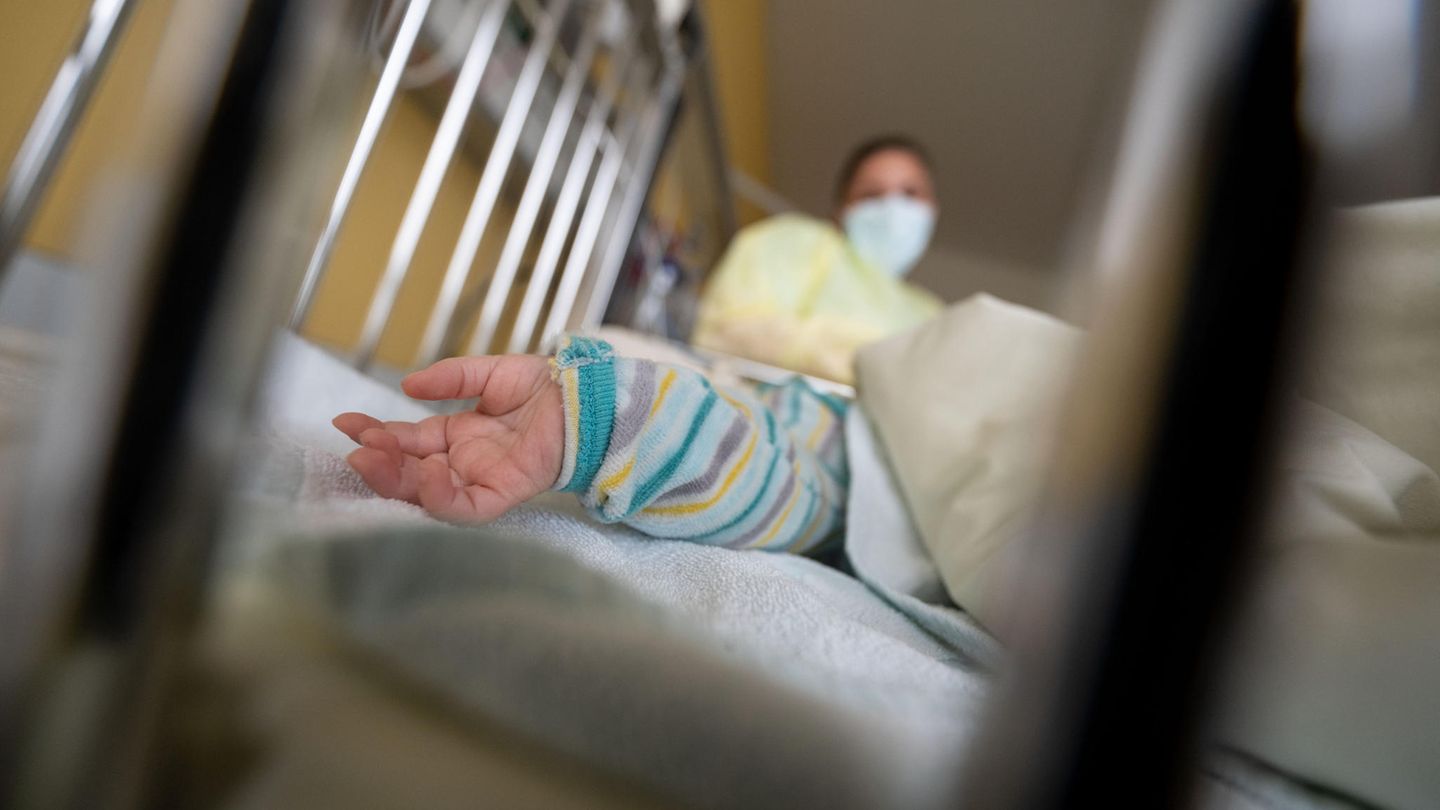“Simply overslept”
There are supply bottlenecks for the vaccine against the RS virus for babies
Copy the current link
The RS virus can be particularly dangerous for small children and infants. Pediatricians are now sounding the alarm. There are supply bottlenecks for the vaccine.
The professional association of pediatricians and adolescent doctors (BVKJ) has complained about bottlenecks in the vaccine for babies against the respiratory syncytial virus.
“Health insurance companies and politicians have simply missed the great opportunity for early and comprehensive vaccination of all at-risk infants against the RS virus,” said the BVKJ spokesman for the North Rhine region, Axel Gerschlauer, to the “Rheinische Post”.
The RS virus is a pathogen that is widespread worldwide and can cause severe respiratory diseases. You can become ill at any age, but it is particularly dangerous for infants and small children. It can be a simple respiratory infection, but severe cases and even death are also possible.
RSV vaccine: waiting lists for antibodies
The head of the North Rhine Pharmacists’ Association, Thomas Preis, also confirmed delivery bottlenecks for the vaccine given the high demand. “The immunization campaign for babies with Nirsevimab (Beyfortus) is unfortunately getting off to a very slow start due to delivery bottlenecks from the manufacturer,” he told the newspaper. The waiting lists for the antibody Nirsevimab, for which the Standing Vaccination Commission has been recommending a single injection for newborns and infants since this summer, are long.
“The manufacturer Sanofi is now trying to fulfill the many orders with goods from France, Spain and the USA,” said Preis to the “Rheinische Post”.
There are fears of a shortage in children’s hospitals
In addition, pediatricians expect children’s hospitals to be overloaded this winter. “There is still a lot to come,” emphasized Gerschlauer, who is a pediatrician in Bonn. Structurally, “nothing at all has changed” in terms of medication supply or clinic utilization.
In view of the expected shortages, Gerschlauer advocated not eliminating any more children’s beds as part of the hospital reform. The reform passed by the Bundestag is intended to put the financing of clinics on a new basis and lead to more specialization in more complicated procedures. As a result, clinics will also close, Federal Health Minister Karl Lauterbach (SPD) announced. “The care of sick children and especially infants was no longer adequately guaranteed last season, even in the big cities. One cannot imagine a deterioration in rural areas,” said Gerschlauer.
In recent winters in Germany, more newborns and infants than usual had to be treated in clinics for acute respiratory diseases. Experts suspect that this is a catch-up effect after the corona pandemic, where comparatively few children came into contact with RSV. The disease can currently only be treated symptomatically.
AFP · DPA
rw
Source: Stern
I’m Caroline, a journalist and author for 24 Hours Worlds. I specialize in health-related news and stories, bringing real-world impact to readers across the globe. With my experience in journalism and writing in both print and online formats, I strive to provide reliable information that resonates with audiences from all walks of life.





